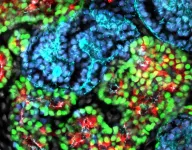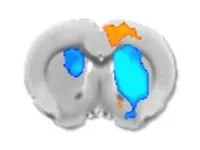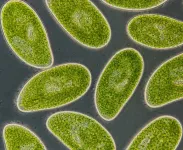(Press-News.org) To democratize access to lab-grown organ-like structures known as organoids and other advanced stem cell and transcriptomic technologies, USC will launch the CIRM ASCEND Center, dedicated to “Advancing Stem Cell Education and Novel Discoveries.” Funded by a $3.95 million grant from the California Institute for Regenerative Medicine (CIRM), the voter-created state agency charged with distributing public funding to support stem cell research and education, ASCEND joins a network of shared resources laboratories - focused on developing and using stem cell-based models to study human cells, physiology, and disease - which are located at USC, the University of California, Los Angeles (UCLA), the University of California, Irvine, City of Hope, and Gladstone Institutes.
Led by a trio of USC Stem Cell faculty members, directors Nils Lindström and Giorgia Quadrato and co-director Francesca Mariani, USC’s CIRM ASCEND Center will offer organoids and other stem cell-based models, analyses, consultations, and in-depth education and training. ASCEND will be housed within the Eli and Edythe Broad CIRM Center for Regenerative Medicine and Stem Cell Research at the Keck School of Medicine of USC.
“USC’s CIRM ASCEND Center is meant to democratize access to stem cell technologies and organoid models to the California population,” said Lindström, assistant professor of stem cell biology and regenerative medicine. “The whole idea actually was initially born out of a conversation we had about: how can we overcome the difficulties of making stem cell and organoid models reproducible, and how can we make them reflect a broader population? It is imperative that we make these tools accessible to the enormously productive California research community to drive innovation and solve urgent clinical problems.”
In summer 2024, ASCEND will launch with a focus on kidney and brain organoids, areas of expertise for Lindström and Quadrato. It will then draw on the skills of other faculty members in USC’s Department of Stem Cell Biology and Regenerative Medicine to expand into cartilage, intestinal and heart organoids. These organoids will be derived from stem cells that reflect the gender, racial and genetic diversity of the people of California, and will be characterized in collaboration with UCLA’s shared resources laboratory, led by Kathrin Plath.
In addition, ASCEND will offer specialized services known as single cell analysis and spatial transcriptomics. These services will include sequencing genetic materials including DNA and RNA, and measuring gene activity and where it occurs within cells, tissues, and organoids.
ASCEND will also provide online and hands-on training and education for scientists at all stages of their careers, including high school students, undergraduates, graduate students, postdoctoral trainees, faculty, physicians, and researchers from academia as well as from the biotech and pharmaceutical industries.
“The call from CIRM is not just to teach the expert in how to do these things, but also to provide educational experience for those that are at the very entry level as well,” said Mariani, who is an associate professor of stem cell biology and regenerative medicine, and integrative anatomical sciences, the director of the stem cell master’s program, and the co-director of the CIRM COMPASS stem cell undergraduate program.
“Our goal is to facilitate a significant change in personalized medicine by promoting collaboration, technology transfer, and the growth of a competent workforce,” said Quadrato, assistant professor of stem cell biology and regenerative medicine. “Our aim is to provide scientists and students in California with access to specialized organoid models, along with advanced single-cell and spatial transcriptional services. We anticipate that this will enable them to push biomedical innovation forward and make progress in disease modeling.”
Juliane Glaeser, director of translational and collaborative research programs for USC Stem Cell, added: “We are very grateful to CIRM for their support. The network of shared resources laboratories is critical to speed up the progress we make in the regenerative medicine field.”
The shared resources laboratories (SRLs) will foster collaboration among California researchers as part of CIRM’s Infrastructure Program, which addresses challenges that hinder progress in the regenerative medicine field.
“By investing in SRLs, we are not only providing essential infrastructure for stem cell research but also positioning California at the forefront of this transformative research,” said Rosa Canet-Aviles, vice president of scientific programs and education at CIRM. “These new SRL awards showcase the remarkable progress in stem cell research and highlight CIRM’s pivotal role in propelling stem cell research forward. Through these awards, CIRM will continue to drive progress, now focusing on cutting-edge disease modeling using human stem cells.”
Andy McMahon, the director of USC’s stem cell research center, added “Undoubtedly, this initiative will make significant contributions to education and foster collaboration in the field of human model systems. It will also play a pivotal role in advancing our comprehension of kidney and brain development and their associated disorders. In improving our ability to model human organ functions and human disease in a dish, these systems will enhance our ability to develop innovative therapeutic interventions.”
END
USC receives $3.95 million CIRM grant for organoid resource center
The grant establishes the USC ASCEND Center to make stem cell-derived organ models accessible to all
2024-03-18
ELSE PRESS RELEASES FROM THIS DATE:
New research finds boreal arctic wetlands are producing more methane over time
2024-03-18
MADISON –– Scientists have been measuring global methane emissions for decades, but the boreal arctic —with a wide range of biomes including wetlands that extend across the northern parts of North America, Europe and Asia — is a key region where accurately estimating highly potent greenhouse gas emissions has been challenging.
Wetlands are great at storing carbon, but as global temperatures increase, they are warming up. That causes the carbon they store to be released into the atmosphere in the form of methane, which contributes to more global warming.
Now, researchers — including the University ...
TLI Investigator Dr. Wei Yan named Editor-in-Chief of the Andrology Journal
2024-03-18
The Lundquist Institute is proud to announce that Wei Yan, MD, PhD, a distinguished professor at the David Geffen School of Medicine at UCLA and Lundquist investigator, has been appointed by the American Society of Andrology and the European Academy of Andrology as the new Editor-in-Chief of Andrology, the highly-respected journal in the field of reproductive medicine.
Dr. Yan's appointment to Andrology is a testament to his dedication to reproductive medicine. With extensive editorial experience, including his previous roles as ...
New study reveals insights into COVID-19 antibody response durability
2024-03-18
Researchers at the Institute of Human Virology (IHV) at the University of Maryland School of Medicine published a new study in the Journal of Infectious Diseases investigating the antibody response following SARS-CoV-2 infection.
Long-lived plasma cells are responsible for durable antibody responses that persist for decades after immunization or infection. For example, infection with measles, mumps, rubella, or immunization with vaccines against tetanus or diphtheria elicit antibody responses that can last for many decades. By contrast, other infections and vaccines elicit short-lived antibody responses that last only a few ...
Climate change alters the hidden microbial food web in peatlands
2024-03-18
DURHAM, N.C. -- The humble peat bog conjures images of a brown, soggy expanse. But it turns out to have a superpower in the fight against climate change.
For thousands of years, the world’s peatlands have absorbed and stored vast amounts of carbon dioxide, keeping this greenhouse gas in the ground and not in the air. Although peatlands occupy just 3% of the land on the planet, they play an outsized role in carbon storage -- holding twice as much as all the world’s forests do.
The fate of all that carbon is uncertain in the face of climate change. And ...
Text nudges can increase uptake of COVID-19 boosters– if they play up a sense of ownership of the vaccine
2024-03-18
New research published in Nature Human Behavior suggests that text nudges encouraging people to get the COVID-19 vaccine, which had proven effective in prior real-world field tests, are also effective at prompting people to get a booster.
The key in both cases is to include in the text a sense of ownership in the dose awaiting them.
The paper, led by Hengchen Dai, an associate professor of management and organizations and behavioral decision making at the UCLA Anderson School of Management, and Silvia Saccardo, an associate professor of social and decision sciences at Carnegie Mellon University, draws on previous research published in Nature that examined the effectiveness ...
A new study shows how neurochemicals affect fMRI readings
2024-03-18
CHAPEL HILL, N.C. – The brain is an incredibly complex and active organ that uses electricity and chemicals to transmit and receive signals between its sub-regions.
Researchers have explored various technologies to directly or indirectly measure these signals to learn more about the brain. Functional magnetic resonance imaging (fMRI), for example, allows them to detect brain activity via changes related to blood flow.
Yen-Yu Ian Shih, PhD, professor of neurology and associate director of UNC’s Biomedical Research Imaging Center, and his fellow lab members have long been curious about how neurochemicals in the brain regulate and influence neural activity, ...
Digital reminders for flu vaccination improves turnout, but not clinical outcomes in older adults
2024-03-18
Embargoed for release until 5:00 p.m. ET on Monday 18 March 2024
Annals of Internal Medicine Tip Sheet
@Annalsofim
Below please find summaries of new articles that will be published in the next issue of Annals of Internal Medicine. The summaries are not intended to substitute for the full articles as a source of information. This information is under strict embargo and by taking it into possession, media representatives are committing to the terms of the embargo not only on their own behalf, but also on behalf of the organization they represent.
----------------------------
1. Digital reminders for flu vaccination improves ...
Avatar will not lie... or will it? Scientists investigate how often we change our minds in virtual environments
2024-03-18
How confident are you in your judgments and how well can you defend your opinions? Chances are that they will change under the influence of a group of avatars in a virtual environment. Scientists from SWPS University investigated the human tendency to be influenced by the opinions of others, including virtual characters.
We usually conform to the views of others for two reasons. First, we succumb to group pressure and want to gain social acceptance. Second, we lack sufficient knowledge and perceive the group as a source of a better interpretation of the current situation, describes Dr. Konrad Bocian from the Institute of Psychology at SWPS University.
So far, only a few studies ...
8-hour time-restricted eating linked to a 91% higher risk of cardiovascular death
2024-03-18
Research Highlights:
A study of over 20,000 adults found that those who followed an 8-hour time-restricted eating schedule, a type of intermittent fasting, had a 91% higher risk of death from cardiovascular disease.
People with heart disease or cancer also had an increased risk of cardiovascular death.
Compared with a standard schedule of eating across 12-16 hours per day, limiting food intake to less than 8 hours per day was not associated with living longer.
Embargoed until 3 p.m. CT/4 p.m. ET, Monday, March 18, 2024
CHICAGO, March 18, 2024 — An analysis ...
Alternative tidal wetlands in plain sight overlooked Blue Carbon superstars
2024-03-18
Blue Carbon projects are expanding globally; however, demand for credits outweighs the available credits for purchase.
Currently, only three types of wetlands are considered Blue Carbon ecosystems: mangroves, saltmarsh and seagrass.
However, other tidal wetlands also comply with the characteristics of what is considered Blue Carbon, such as tidal freshwater wetlands, transitional forests and brackish marshes.
In a new study, scientists from Australia, Indonesia, Singapore, South Africa, Vietnam, the US and Mexico have highlighted the increasing opportunities for Blue Carbon projects for the conservation, restoration and improved management of highly threatened ...
LAST 30 PRESS RELEASES:
Blood test predicts which bladder cancer patients may safely skip surgery
Kennesaw State's Vijay Anand honored as National Academy of Inventors Senior Member
Recovery from whaling reveals the role of age in Humpback reproduction
Can the canny tick help prevent disease like MS and cancer?
Newcomer children show lower rates of emergency department use for non‑urgent conditions, study finds
Cognitive and neuropsychiatric function in former American football players
From trash to climate tech: rubber gloves find new life as carbon capturers materials
A step towards needed treatments for hantaviruses in new molecular map
Boys are more motivated, while girls are more compassionate?
Study identifies opposing roles for IL6 and IL6R in long-term mortality
AI accurately spots medical disorder from privacy-conscious hand images
Transient Pauli blocking for broadband ultrafast optical switching
Political polarization can spur CO2 emissions, stymie climate action
Researchers develop new strategy for improving inverted perovskite solar cells
Yes! The role of YAP and CTGF as potential therapeutic targets for preventing severe liver disease
Pancreatic cancer may begin hiding from the immune system earlier than we thought
Robotic wing inspired by nature delivers leap in underwater stability
A clinical reveals that aniridia causes a progressive loss of corneal sensitivity
Fossil amber reveals the secret lives of Cretaceous ants
Predicting extreme rainfall through novel spatial modeling
The Lancet: First-ever in-utero stem cell therapy for fetal spina bifida repair is safe, study finds
Nanoplastics can interact with Salmonella to affect food safety, study shows
Eric Moore, M.D., elected to Mayo Clinic Board of Trustees
NYU named “research powerhouse” in new analysis
New polymer materials may offer breakthrough solution for hard-to-remove PFAS in water
Biochar can either curb or boost greenhouse gas emissions depending on soil conditions, new study finds
Nanobiochar emerges as a next generation solution for cleaner water, healthier soils, and resilient ecosystems
Study finds more parents saying ‘No’ to vitamin K, putting babies’ brains at risk
Scientists develop new gut health measure that tracks disease
Rice gene discovery could cut fertiliser use while protecting yields
[Press-News.org] USC receives $3.95 million CIRM grant for organoid resource centerThe grant establishes the USC ASCEND Center to make stem cell-derived organ models accessible to all




